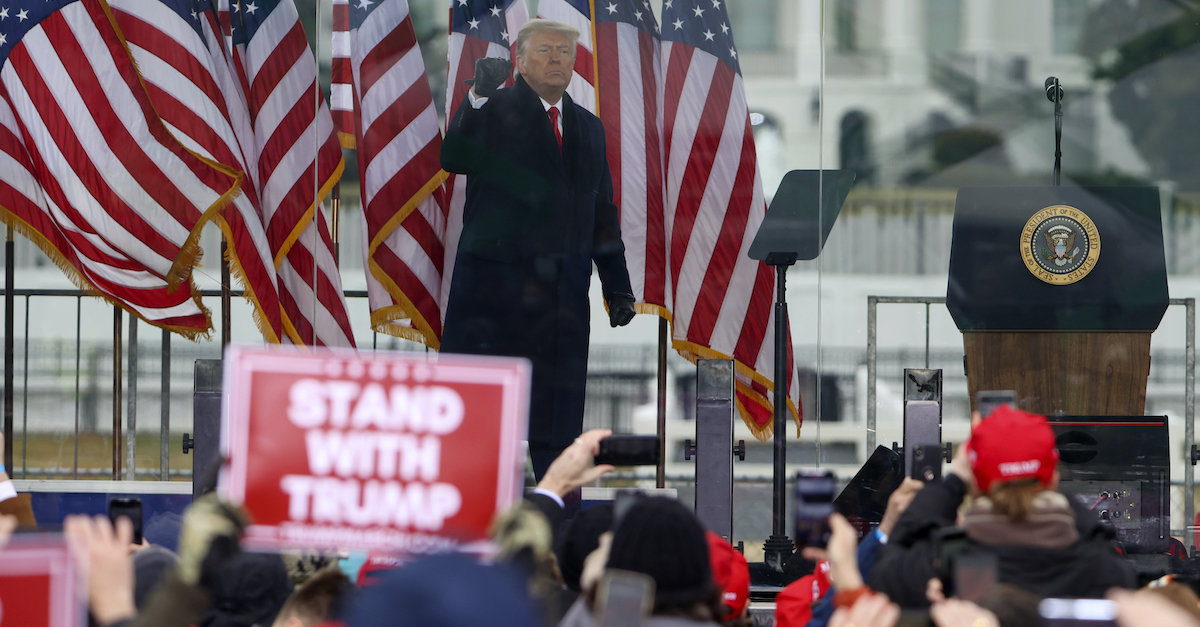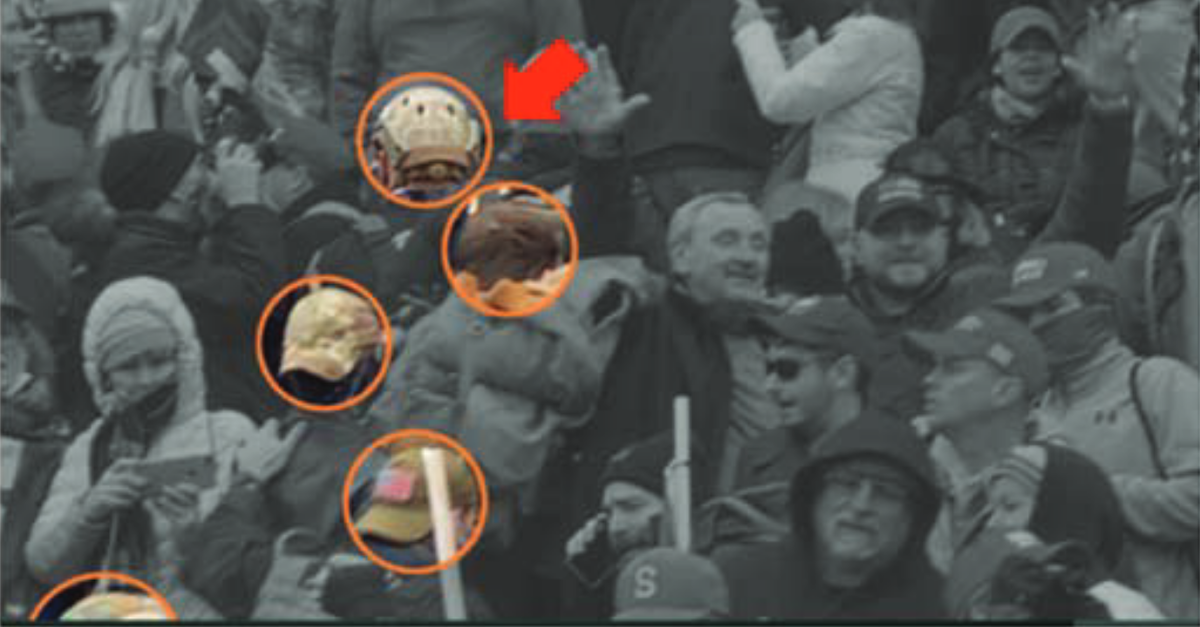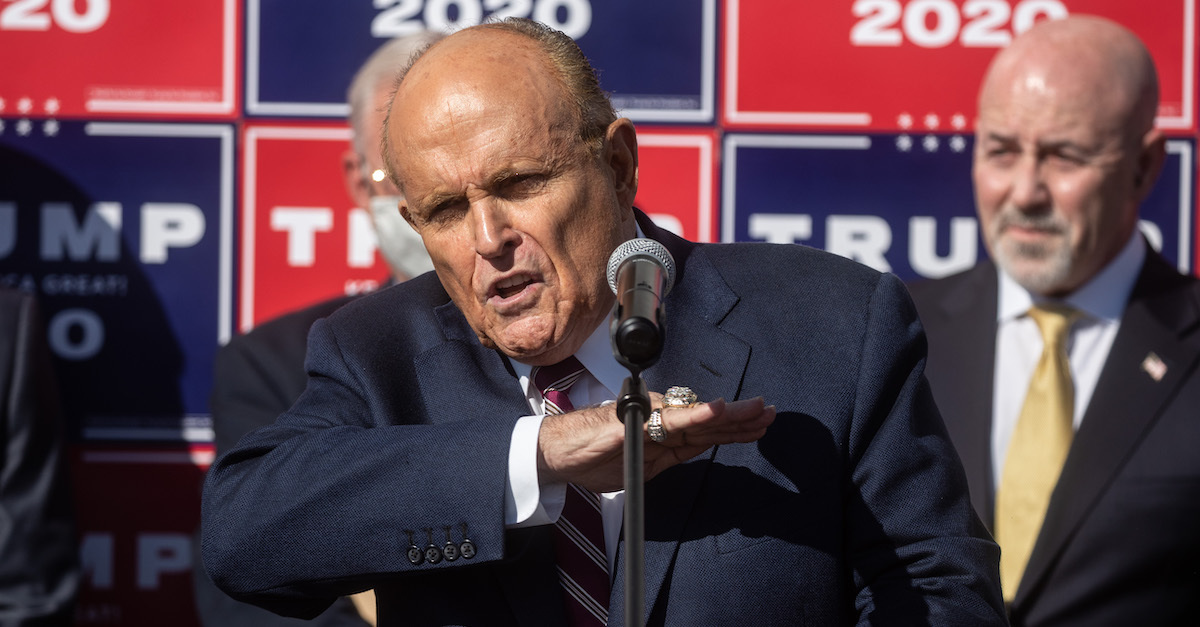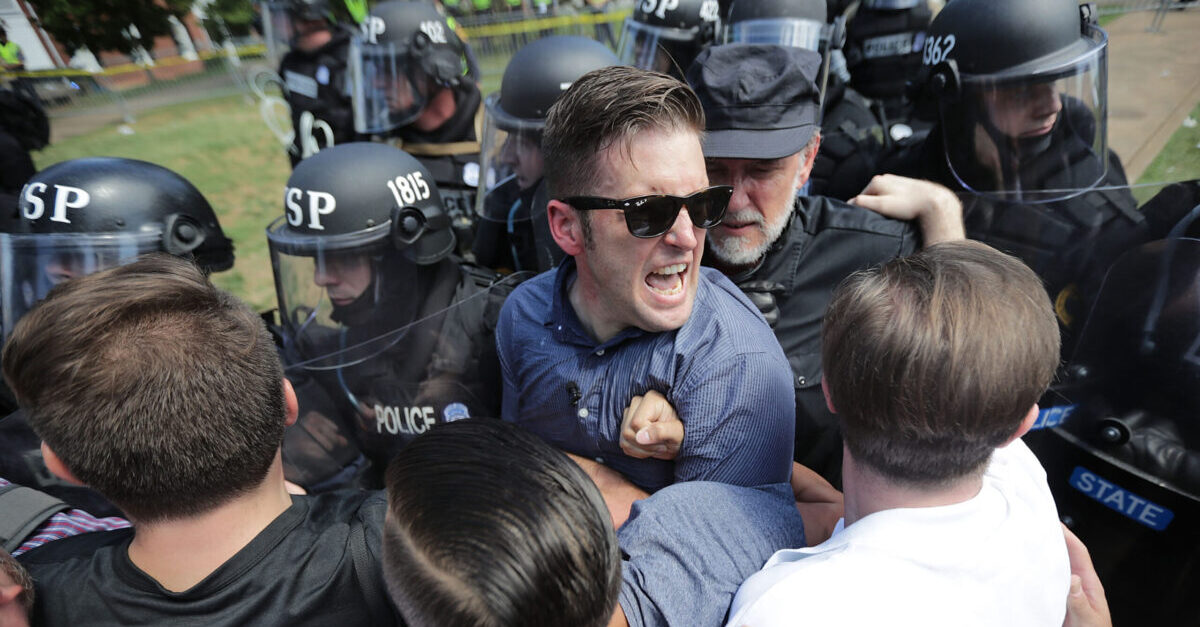
Donald Trump’s attorney floated an extraordinarily broad view of presidential immunity on Monday in an attempt to dismiss a trio of lawsuits alleging that the former president incited the Jan. 6 attack on the U.S. Capitol. One of the three lawsuits accuses Trump of conspiring with Rudy Giuliani and extremist militias to violate the Ku Klux Klan Act.
Trump’s lawyer Jesse Binnall, who spearheaded the failed effort to overturn the Nevada results with a series of conspiracy theories rejected by a judge, characterized the lawsuits as “full of propaganda meant to achieve a political rather than a legal objective.”
“Not the State Laws”
As in other lawsuits against Trump, Binnall advanced an expansive theory of immunity that would cover virtually any statement that a president made, regardless of whether those statements were defamatory or incited violence.
Appearing skeptical of that position, U.S. District Judge Amit P. Mehta replied that the Supreme Court is clear on the scope of immunity: “Context matters,” said Mehta, a Barack Obama appointee presiding over multiple criminal prosecutions of Jan. 6 defendants.
Pressing Trump’s lawyer on this point, Mehta asked whether it would cover Trump’s call to Georgia Secretary of State Brad Raffensperger (R), and Binnall replied: “Yes, sir.”
When Binnall justified this on the presidential duty to take care that the laws are “faithfully executed,” Judge Mehta shot back: “Not the state laws.”
A little less than a year ago, Rep. Bennie Thompson (D-Miss.) sued Trump, Giuliani, the Proud Boys, and the Oath Keepers in a lawsuit accusing them of having “conspired to incite an assembled crowd to march upon and enter” the U.S. Capitol on Jan. 6, 2021. Thompson filed his complaint more than a month later on Feb. 16, alleging that the ex-president, his lawyer, and the militia members acted in cahoots to disrupt the certification of President Joe Biden’s victory.

Oath Keepers approach the U.S. Capitol in “stack” formation, prosecutors say in this indictment of nine members. The arrow points to Florida chapter leader Kelly Meggs. (Screenshot from Oath Keepers indictment)
“The carefully orchestrated series of events that unfolded at the Save America rally and the storming of the Capitol was no accident or coincidence,” the lawsuit alleged. “It was the intended and foreseeable culmination of a carefully coordinated campaign to interfere with the legal process required to confirm the tally of votes cast in the Electoral College.”
Later becoming the chairman of the Committee to Investigate the Jan. 6 Attack on the U.S. Capitol, Thompson ultimately stepped aside from his lawsuit, which he handed off to fellow Democratic Representatives Steven Cohen of Tennessee, Veronica Escobar of Texas, Pramila Jayapal of Washington State, Henry C. Johnson of Georgia, Jerry Nadler of New York, Maxine Waters of California, and others.
“The President Could Promote Treason”
Subsequent lawsuits by Rep. Eric Swalwell (D-Calif.) and Capitol Police officers also alleged that Trump incited the attack, or—in the words of the law enforcement officials—”directing” their assaults.
Joseph Sellers, an attorney for the lawmakers suing Trump, ridiculed the former president’s wide theory of immunity.
“The president could promote treason in a public forum,” leaving a court “powerless” to do anything about it, said Sellers, a partner at Cohen Milstein.
“That’s inconceivable as something that the Supreme Court had in mind,” Sellers added.
Judge Mehta noted that presidents do enjoy a wide degree of latitude under the Supreme Court precedent Nixon v. Fitzgerald, which held that presidents are “entitled to absolute immunity from damages liability predicated on his official acts.” Arthur Ernest Fitzgerald, an Air Force contractor, claimed that he was fired because of his congressional testimony in 1968. The high court found that the court could not scrutinize the president’s conduct.
Though Binnall cited the Fitzgerald precedent during his arguments, another plaintiffs’ attorney pointed to a famous counterexample for the proposition that presidents could not be held liable for speech: Bill Clinton, who was scrutinized for lying under oath.
Binnall noted that the case in question was not the defamation case of Clinton v. Jones—but the resulting bar action.
Judge Mehta, however, noted that courts overseeing the Jones case asked for Clinton’s testimony.
Giuliani’s lawyer Joseph Sibley argued that the allegations against the former mayor of New York fail because there was no “huddle” with Trump and the militia groups agreeing to attack the U.S. Capitol, but the judge pushed back at that notion.

PHILADELPHIA, PENNSYLVANIA – NOVEMBER 07: Attorney for the President, Rudy Giuliani speaks to the media at a press conference held in the back parking lot of Four Seasons Total Landscaping on November 7, 2020 in Philadelphia, Pennsylvania. The press conference took place just minutes after news networks announced that Joe Biden had won the presidency over Donald Trump after it was projected that he had won the state of Pennsylvania. (Photo by Chris McGrath/Getty Images)
Mehta suggested that it would be enough if there were “an invitation to engage in criminal conduct—or in this case tortious conduct—and that invitation [were] accepted.”
In response, Sibley argued that Trump’s words do not come close to meeting that standard. He argued that the First Amendment protects even speech that inspires violence—if it is not an explicit call for violence—even if the speaker approves of the violence.
“Fight Like Hell”
In his written arguments, Binnall claimed that the lawsuit tried to punish the former president for his speech goading supporters to “peacefully and patriotically make [their voices] heard.”
“The speech concerned electoral challenges to the 2020 presidential election, which were about to be decided by congressional action,” Binnall insisted. “In doing so, [Trump] was exercising rights firmly entrenched in the First Amendment. Freedom of speech, expression, assembly, and petition are treasured and unique American rights. Political speech may be controversial and may upset those that disagree with the message, but Americans are privileged to employ their rights without fear of legal reprisal.”
The motion glossed over Trump’s exhortation that the mob “fight like hell” to restore him to power.
Citing that line, Judge Mehta noted that Trump’s last words urged them to go to the Capitol, and his calls for “fighting” and showing strength outweighed that throwaway line. The judge also cited a recent case against white nationalist Richard Spencer and organizers of the Charlottesville, in which the political far-right was held liable for violence.

White nationalist Richard Spencer (center) and his supporters clash with Virginia State Police after the “Unite the Right” rally was declared an unlawful gathering August 12, 2017 in Charlottesville, Virginia. (Photo by Chip Somodevilla/Getty Images)
As he did in his written filings, Binnall compared Trump’s remarks to other political violence that others tied to speech, like the 2017 shooting at a congressional baseball game. He previous likened Trump’s remarks to those of Maxine Waters. Judge Mehta interrupted that line of argument, saying it was not helpful to him deciding the issues before him: whether Trump’s speech crossed the line of inciting “imminent lawless action,” under the Supreme Court’s standard in Brandenburg v. Ohio.
Citing the Supreme Court’s decision in the case of Claiborne Hardware, Mehta noted that the high court found there that there would have been a “substantial question” if the speech in that case was immediately followed by violence.
If there is a substantial question, the judge pointedly asked Binnall whether that meant the cases must survive a motion to dismiss.
In addition to his First Amendment defense, Trump challenged the lawsuit on multiple grounds, including standing, presidential immunity, and specific challenges to D.C. law.
Rep. Mo Brooks (R-Ala.), who was subsequently added as a defendant to the lawsuit, claimed that he should qualify for what is known as Westfall Act immunity in his capacity as a public servant, a position with which the Department of Justice emphatically disagreed.
Brooks represented himself at the telephone conference and compared his objection to the 2020 election to Waters’ objection to certification of George W. Bush’s election. Mehta told him that the issue before him was not the merits of his objection, only the capacity in which he gave his speech.
Oral arguments spanned throughout the afternoon for roughly five hours, before Judge Mehta ended the proceedings without a ruling.
(Photo by Tasos Katopodis/Getty Images)